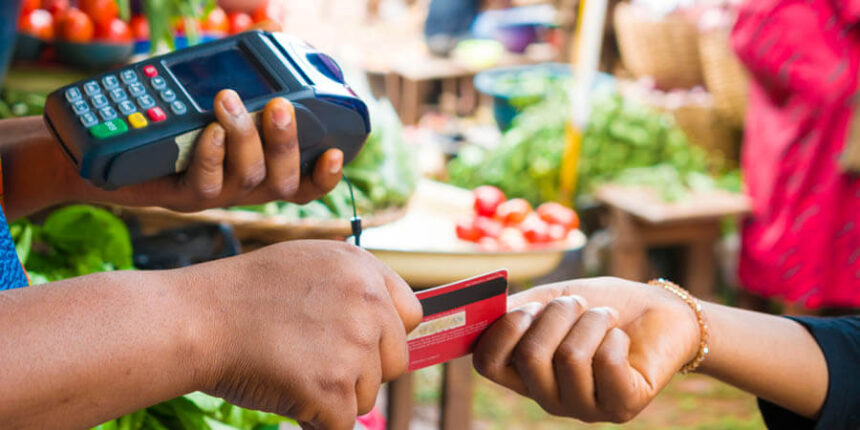Mobile payments have been booming in Africa over the past few years, revolutionising the way people conduct transactions and manage their finances. Several key factors contribute to this rapid growth in mobile payment adoption in Africa, including the widespread use of mobile phones, the lack of access to traditional banking services, and the increasing penetration of digital technologies across the continent.
The increasing adoption of fintech innovations has fuelled the rise of mobile payment solutions. Startups and established companies alike are developing user-friendly applications and services that cater to diverse financial needs, such as micro-loans, savings accounts, and insurance products. These innovations not only streamline transactions but also promote financial inclusion, empowering individuals and small businesses to participate in the economy more actively.
The COVID-19 pandemic also has accelerated the adoption of mobile payments, as people sought contactless and safe alternatives to cash transactions. As health and safety concerns took precedence, many consumers and businesses turned to mobile payment platforms to facilitate transactions, further embedding these solutions into everyday life.
One of the primary reasons for the booming mobile payment industry in Africa is the widespread availability and use of mobile phones. According to recent statistics, the number of mobile phone users in Africa has surpassed 1 billion, making it the fastest-growing mobile market in the world. With such a large and diverse population using mobile devices, it has become easier for people to access mobile payment services and conduct transactions using their mobile phones.
- Advertisement -
M-Pesa in Kenya is one example. As one of the largest mobile money platforms in Africa, M-Pesa is making Kenya a leader in digital banking in Sub-Saharan Africa. According to the Kenyan Ministry of Communications, the number of mobile users in Kenya is expected to reach 38.7 million as of March 2024, accounting for 75% of the total population. Among them, M-Pesa accounts for 94.9% of the market.
Lack of access to traditional banking services in many parts of Africa has also fueled the growth of mobile payments. In countries where banking infrastructure is limited or unreliable, mobile payments offer a convenient and accessible way for people to send and receive money, pay bills, and make purchases. This has led to an increase in financial inclusion and empowerment for millions of people who previously did not have access to formal banking services.
M-Pesa means “mobile money” in Swahili and was launched in 2007 by Kenyan telecommunications company Safaricom. Provide mobile service. The user only needs a basic mobile phone, no internet connection, no credit card and can transfer, pay and shop by post. This simple payment method is quite popular locally and has been transformed into a platform that provides various financial services such as deposits, transfers, payments, loans and financial management. It has expanded to seven African countries and has become a leader in mobile payments on the continent.
Another factor driving the booming mobile payment industry in Africa is the increasing penetration of digital technologies across the continent. With the rise of smartphones, mobile internet connectivity, and digital platforms, people in Africa are becoming more comfortable with using digital tools and services for their everyday tasks, including managing their finances. This has created a fertile ground for mobile payment providers to innovate and offer new and innovative services to meet the growing demand for digital financial solutions.
A young Nigerian mobile payments company (PalmPay) funded by Chinese investors is one of the most promising companies in China-Africa private sector cooperation. PalmPay’s active users have increased fivefold in the past year to 25 million, and the company plans to expand its operations across borders from Ghana to Kenya, Uganda and Tanzania.
- Advertisement -
4,444 Nigerians manage about 80 per cent of their financial lives through the PalmPay app on their mobile phones, with new features expected to increase to 100 per cent in the near years.
Moreover, the rise of mobile payment platforms in Africa has also been fueled by the growth of e-commerce and digital marketplaces in the region. As more people turn to online shopping and digital commerce for their everyday needs, the demand for secure and convenient payment methods has increased. Mobile payment services provide a quick and easy way for consumers to make payments for goods and services online, driving the growth of e-commerce and digital transactions in Africa.
The booming mobile payment industry in Africa is also driven by the strong entrepreneurial spirit and innovative mindset of the African people. Many local startups and fintech companies have emerged in recent years, offering innovative mobile payment solutions tailored to the needs and preferences of the African market. These companies are leveraging the latest technologies, such as blockchain and artificial intelligence, to create secure, efficient, and user-friendly mobile payment platforms that cater to the unique challenges and opportunities of the African financial landscape.
In addition, the growing adoption of mobile payments in Africa is also supported by government initiatives and regulatory reforms aimed at promoting financial inclusion and enabling digital payments. Governments across the continent are recognizing the potential of mobile payments to drive economic growth, reduce poverty, and enhance financial literacy among their citizens. As a result, they are implementing policies and regulations that support the growth of mobile payment services and encourage collaboration between public and private stakeholders to create a robust and inclusive digital payment ecosystem.
The booming mobile payment industry in Africa is a testament to the transformative power of technology and innovation in driving financial inclusion and economic development on the continent. With the widespread availability of mobile phones, the lack of access to traditional banking services, the increasing penetration of digital technologies, the rise of e-commerce, the entrepreneurial spirit of the African people, and government support for digital payments, mobile payments are set to continue its rapid growth and become a key driver of financial inclusion and economic empowerment in Africa.
In conclusion, the booming mobile payment landscape in Africa is not merely a trend; it represents a fundamental shift in how financial services are delivered and accessed. As technology continues to evolve and more individuals embrace digital financial solutions, the potential for economic growth and financial inclusion in Africa is immense, paving the way for a more connected and financially empowered continent.










